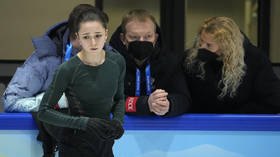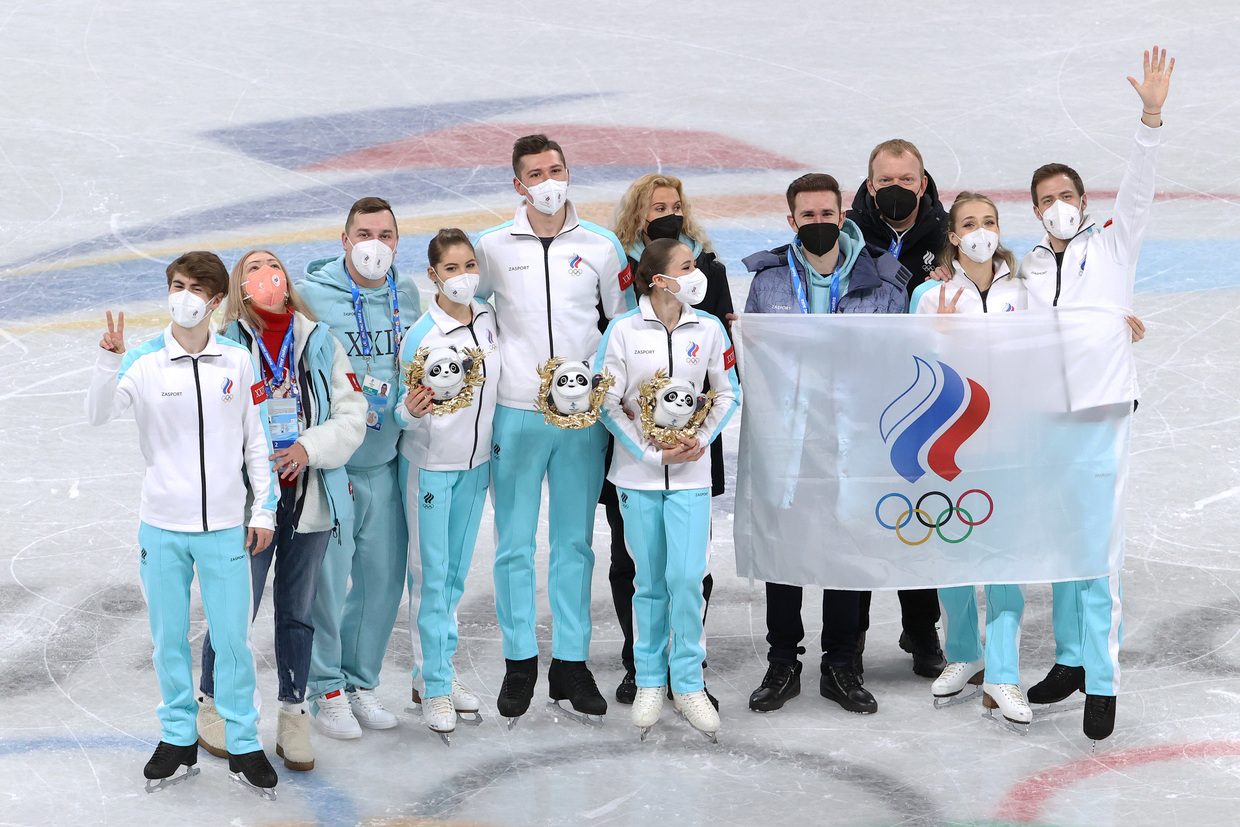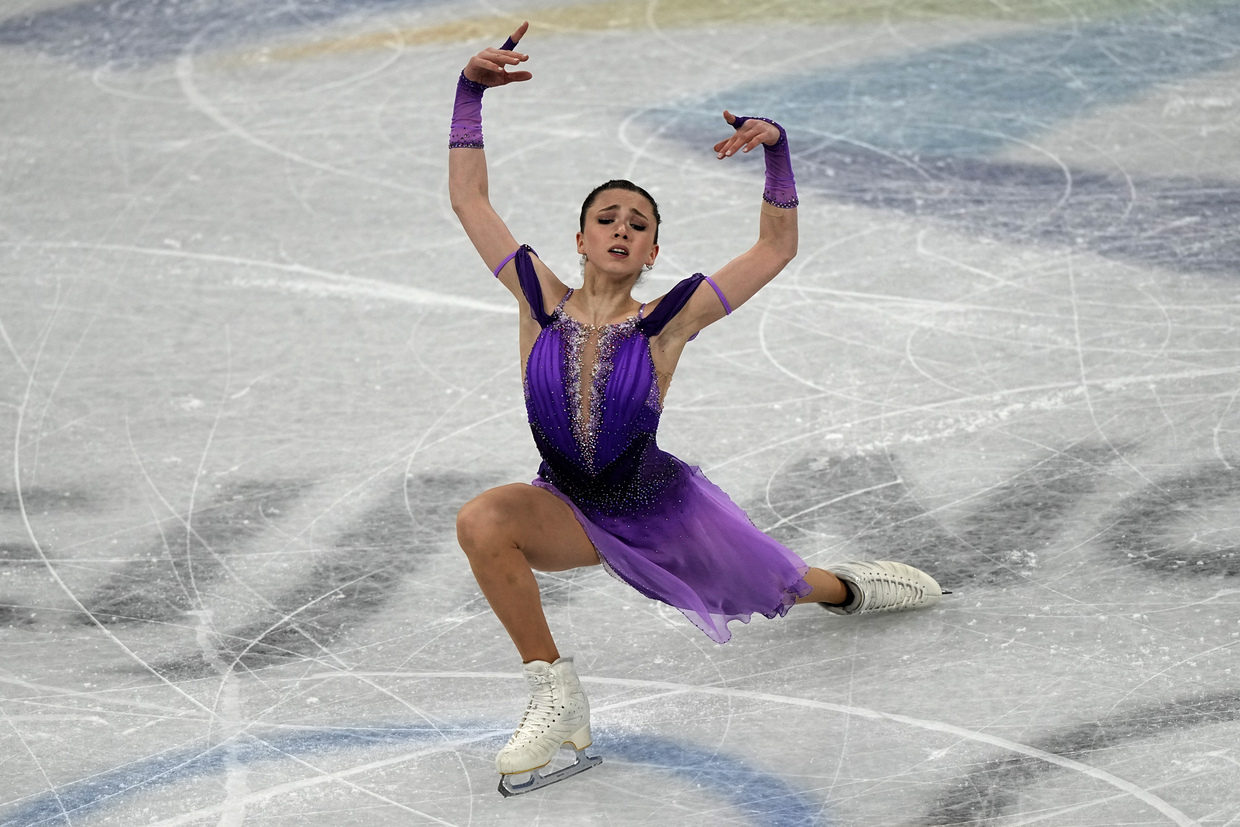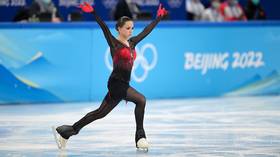Olympic bosses made mistakes in Valieva doping speculation – sports lawyer to RT

The International Olympic Committee (IOC) has made mistakes amid speculation surrounding an alleged positive doping test by Russian figure skater Kamila Valieva, leading sports lawyer Lucien W. Valloni has told RT.
Valieva, 15, has found herself at the center of an alleged investigation just days after helping the Russian Olympic Committee (ROC) to the gold medal in the figure skating team event at the Beijing Winter Games.
After the medal ceremony for the event was delayed, reports in Russia and elsewhere have claimed that Valieva is being investigated for a positive test for banned substance trimetazidine, a medication used to treat chest pain.
Russian officials have not commented directly on the allegations and have urged patience until an official statement is made.
IOC spokesman Mark Adams said on Thursday that he would not comment on “speculation” and reiterated that a “legal issue” was ongoing.
Speaking to RT, Swiss-based sports lawyer Valloni said that the noise surrounding the case should be toned down, expressing regret that Valieva’s name had emerged in the media in the first place.
“Of course it has an impact. It’s not good that the name is mentioned. I think we should protect minors, especially with such strong allegations, that why I think it’s very premature to say she has doped or not doped,” said Valloni, who has worked extensively with various sports federations and the Court of Arbitration for Sport (CAS).
“I think it’s important to respect that nothing has been commented officially, we must protect this skater.
“It’s very clear that in any case the athlete has to be protected, and only information can be shared with the public in the moment that the athlete has the right to comment on it.
“Any doping allegation does harm to the image of any athlete at any time, that’s why this information is so sensitive and should never have been disclosed.”
While the IOC has remained tight-lipped in public press conferences, Valieva’s name has nonetheless leaked out since the medal ceremony for the team event was initially postponed on Tuesday.
Valloni criticized the IOC for that delay to the ceremony, saying it would inevitably spark speculation.
“The IOC made a mistake in my view by suspending the ceremony, which made to the public clear that this was something strange, and that is not good,” said Valloni.
“Everybody could find out who could be suspected, and that was not a good point.”

Adding to the complications surrounding the alleged case involving Valieva is her age. Minors are not required to be publicly named in WADA cases, even if they are able to be sanctioned.
Commenting on Valieva’s status, Valloni said people should avoid speculating when the facts were far from clear.
“Minors are protected, of course, but they are not outside the rules. I would not like to say she has doped or not,” said the lawyer.
“Minors can be punished theoretically, but of course the sanction should be proportionate to the fault, which can not be as strong as for a non-minor athlete.
“It could theoretically lead to the disqualification of the team, but this is pure speculation, we should not dig into that too much.
“First of all, we don’t know if it really was a positive test, was the B Sample request, everything must be checked, is it really correct, was it a wrong test? And then we can assess more.
“But now we have nothing on the table, that’s why we should really calm down.”

The drug allegedly at the center of the case, Trimetazidine, is used to treat angina or chest pain and is on the WADA banned list.
The agency noted in a 2018 advisory that the substance – also known as ‘TMZ’ – could show up as a false positive in urine samples resulting from the metabolism of lomerizine, which is a permitted drug used for the treatment of migraine.
Valloni said there were questions as to whether drugs such as Trimetazidine should even be deemed ‘performance-enhancing’.
“This is a discussion when the WADA Code is made and this list, there are a lot of substances on the list that should be deleted in my view,” said Valloni.
“Not performance-enhancing drugs are problematic, social drugs are on the list and are not performance-enhancing, I think a lot of changes should be made.”
Valieva was seen training on Thursday in Beijing under the watchful eye of her coach Eteri Tutberidze, who refused to comment on “gossip” when asked about the situation.
A Russian figure skating spokeswoman denied claims in some sections of the Russian media that Valieva was set to be suspended from the Games.
Valieva, a European and Russian champion in her first senior season, has already made history in Beijing by becoming the first female skater ever to land a quad at the Olympics.
Valieva holds world record points tallies for both the women’s short and free programs, as well the overall points score.
The Kazan-born skater is the hot favorite for the ladies’ singles title in Beijing, where the action is due to get underway on Tuesday, February 15.













